International News
With 2 missing Indians ‘killed’, is Kenya safe?
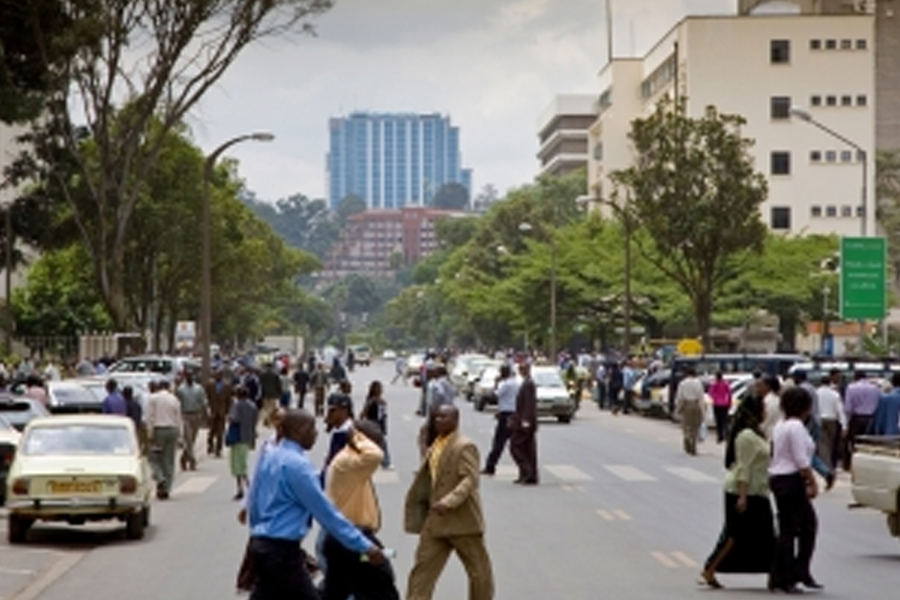
The report on two Indians missing in Kenya for more than 90 days, and their subsequent “killing”, as claimed by the Kenyan President’s aide last week, has raised questions on the safety of Indians living in and travelling to the East African nation.
Mohammad Zaid Sami Kidwai and Zulfiqar Ahmed Khan, who went to Kenya in April to help with President William Ruto’s social media campaign, were killed by the DCI (Directorate of Criminal Investigations) unit, Ruto’s aide Dennis Itumbi said in a Facebook post.
The now-disbanded Special Service Unit was alleged to have been behind several cases of extrajudicial killings and enforced disappearances of both citizens and foreign nationals.
India has described as “very disturbing” the events surrounding the abduction of its nationals in Kenya and the subsequent lack of information in the case.
“I’ve spent one year and seven months in Nairobi and from that, I can say Nairobi is pretty much safe for Indians. However, always have a local Kenyan person to accompany you and keep your car windows shut,” Atul Jha, who lived in Nairobi from 2016 to 2018, said.
“Kenya has a big community of Indians. It is safe for Indians or any other expatriate to live and work here,” Om Sharma, who keeps travelling to Kenya for work, told IANS.
In a 2017 incident that led to widespread outrage in Kenya, a 32-year-old businessman of Indian origin Bunty Shah was shot dead by the police inside his home in a case of mistaken identity. He was declared dead on arrival at the hospital.
Bunty Shah belonged to a Gujarati family that owns Bobmil Industries Ltd, a mattress manufacturing company in Nairobi.
In a similar case recently, Pakistani journalist Arshad Sharif was shot dead in a “case of mistaken identity”.
But what shook the Indian community was a 2013 terrorist attack on Westgate centre in Kenya by al-Shabab militants, which killed three Indians, including an eight-year-old boy, and left many others injured.
One of the victims, 40-year-old Sridhar Natarajan was working with a pharma firm, the boy Paramshu Jain was the son of a manager of the local Bank of Baroda branch. The third victim, Sudharshan B. Nagaraj, was from Bengaluru.
In the 2008 violence that erupted after former President Mwai Kibaki was declared the winner of the presidential election, looting of Indian shops were reported in Kenya.
As such, there is no official travel advisory from the Indian side and hundreds of Indians are doing business and jobs in Kenya.
However, a US government advisory released this month says that crime is high in Kenya, and incidents of armed robbery, carjacking, kidnapping and muggings are seen in Nairobi and Mombasa.
“Local police are willing but often lack the capability to respond effectively to serious criminal incidents and terrorist attacks,” the advisory noted.
An Australian travel advisory updated today said: “Don’t walk around after dark. If you live in Kenya, invest in strong personal security measures… Attacks could occur at any time and with little or no warning”.
Close to a lakh people living in Kenya are Indians, and they wield considerable political and economic power. The Indians also make up the 44th tribe in Kenya.
The tourism board in Kenya wants a 40 per cent increase in Indian tourists to Kenya, and wants Bollywood filmmakers to shoot in the African country.
During the last 10 years, the Indian market has grown to be the third largest tourism source market for Kenya representing a market share of 7.3 per cent of total tourist arrivals into Kenya.
Records show that 31,983 Indian workers came to Kenya in the early 19th centrury as indentured labourers.
They worked as traders and farmers on the railway system that the British were building in east Africa.
The majority of Indians trace their ancestry to the regions of Rajasthan, Gujarat, and Punjab. There are also large numbers who originate from Maharashtra, Odisha, Goa and Tamil Nadu.
Most are found in the major urban areas of Nairobi and Mombasa, and are mainly engaged in construction, metal and retail businesses. Some work in banks. They also own vast tracts of farmland in the countryside.
International News
India & Russia Are Working On Chennai-Vladivostok Eastern Maritime Corridor: PM Modi
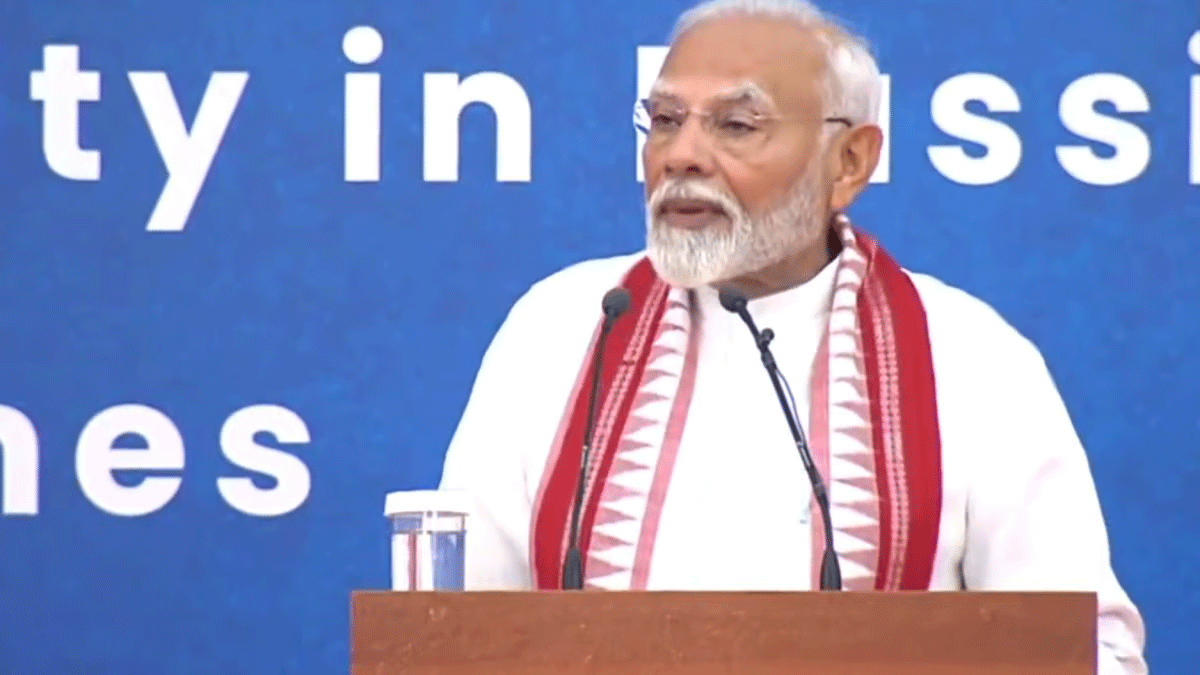
Moscow: Addressing Indians living in Russia, Prime Minister Narendra Modi on Tuesday at a community programme in Moscow said that India and Russia are working on the Chennai-Vladivostok Eastern Maritime Corridor.
PM Modi said that they are discovering each other through Ganga-Volga dialogue.
“Two years ago, the first commercial consignment also reached here from the North-South Transport Corridor… Now we are also working on Chennai-Vladivostok Eastern Maritime Corridor. Both our countries are discovering each other through Ganga Volga dialogue and civilization.”
PM Modi Recalls His Visit To Russia In The Year 2015
He recalled his visit to Russia in 2015 and said that he had then said that the 21st century would be a witness to India’s success and development. Today, the whole world believes the same and it is witnessing India’s growth.
“When I came here in 2015, I had said that the 21st century will belong to India. Experts and veterans of all fields say in unison that India is rapidly progressing.”
Prime Minister said that today, as ‘Vishwa Bandhu’, or ‘a friend to the world’. India is giving new confidence to the world.
“India’s growing capability has given the whole world a hope of stability and prosperity. India is being seen as a strong pillar of the new, emerging, multipolar, world order,” he said.
PM Modi On India
Prime Minister said that India is always the first country to provide aid whenever any country faces a crisis.
“When India talks about peace, dialogue and diplomacy, the whole world listens. Whenever the world faces a crisis, India is the first country to reach there,” he said.
External Affairs Minister S Jaishankar, Foreign Secretary Vinay Kwatra, and India’s Ambassador to Russia, Vinay Kumar also accompanied PM Modi to the event.
Earlier on Monday, Russian President Vladimir Putin and Prime Minister Narendra Modi held an informal meeting at the Novo-Ogaryovo residence of the Russian president near Moscow.
International News
Iran-Pakistan Diplomatic Tensions Soar As Islamabad Expels Iranian Ambassador Following Tehran’s Missile Attack
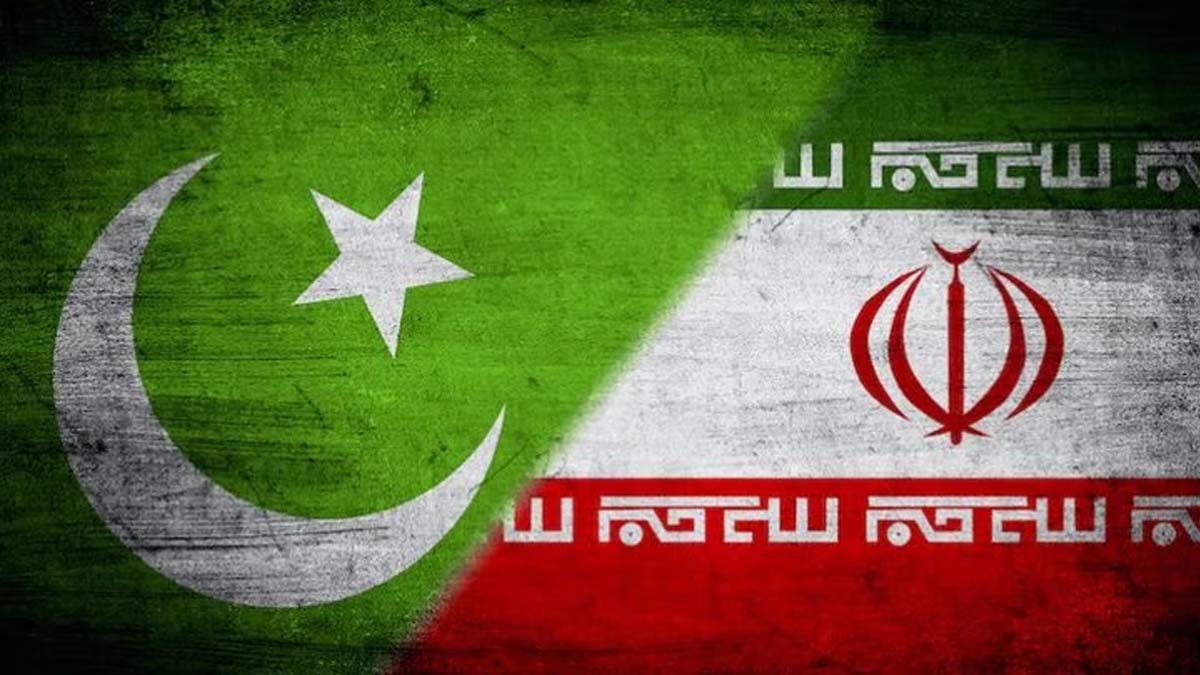
Following Iran’s launch of a barrage of missiles on Pakistan, Islamabad on Wednesday expelled the Iranian ambassador and recalled its ambassador from Tehran, Geo News reported.
“Pakistan has decided to recall its ambassador from Iran and that the Iranian Ambassador to Pakistan who is currently visiting Iran may not return for the time being,” Foreign Office spokesperson Mumtaz Zahra Baloch said while addressing a press briefing in Islamabad.
Earlier, Iran attacked the headquarters of a terrorist group opposed to Tehran with drones and missiles in Pakistan on late hours of Tuesday, Al Arabiya News reported citing Tasnim news agency.
Pakistan’s Ministry of Foreign Affairs said that the violation of Pakistan’s sovereignty is “completely unacceptable” and warned of serious consequences. It further said that Iran has taken this action despite the existence of several channels of communication between the two nations.
‘Responsibility for consequences will lie with Iran’
“Pakistan reserves the right to respond to this illegal act and the responsibility for the consequences will lie squarely with Iran,” Baloch said, adding that Islamabad had conveyed the message to the Iranian government.” The foreign ministry spokesperson said.
Formed in 2012, Jaish al-Adl, designated as a “terrorist” organisation by Iran, is a Sunni terrorist group that operates in Iran’s southeastern province of Sistan-Baluchistan, Al Arabiya News reported.
Over the years, Jaish al-Adl has launched numerous attacks on Iranian security forces. In December, Jaish al-Adl took responsibility for an attack on a police station in Sistan-Balochistan that claimed the lives of at least 11 police personnel, according to Al Arabiya News reported.
Sistan-Balochistan borders Afghanistan and Pakistan. The region has a history of clashes between Iran’s security forces and Sunni terrorists, as well as drug smugglers, Al Arabiya News reported.
Dawn news reported that last month, at least 11 Iranian police officers were killed in an attack overnight on a police station in the southeastern province of Sistan-Baluchestan. Iranian Interior Minister Ahmad Vahidi, while visiting the site, had urged Pakistan to prevent terrorist groups from establishing bases within its borders.
The attacks in Pakistan were carried out a day after Iran’s Islamic Revolutionary Guard Corps (IRGC) launched missiles into Iraq’s Kurdistan region at what it called an Israeli “spy headquarters” and at alleged ISIS-linked targets in Syria, the report said.
disaster
Tsunami Waves Hit Japan After Powerful Earthquake, Terrifying
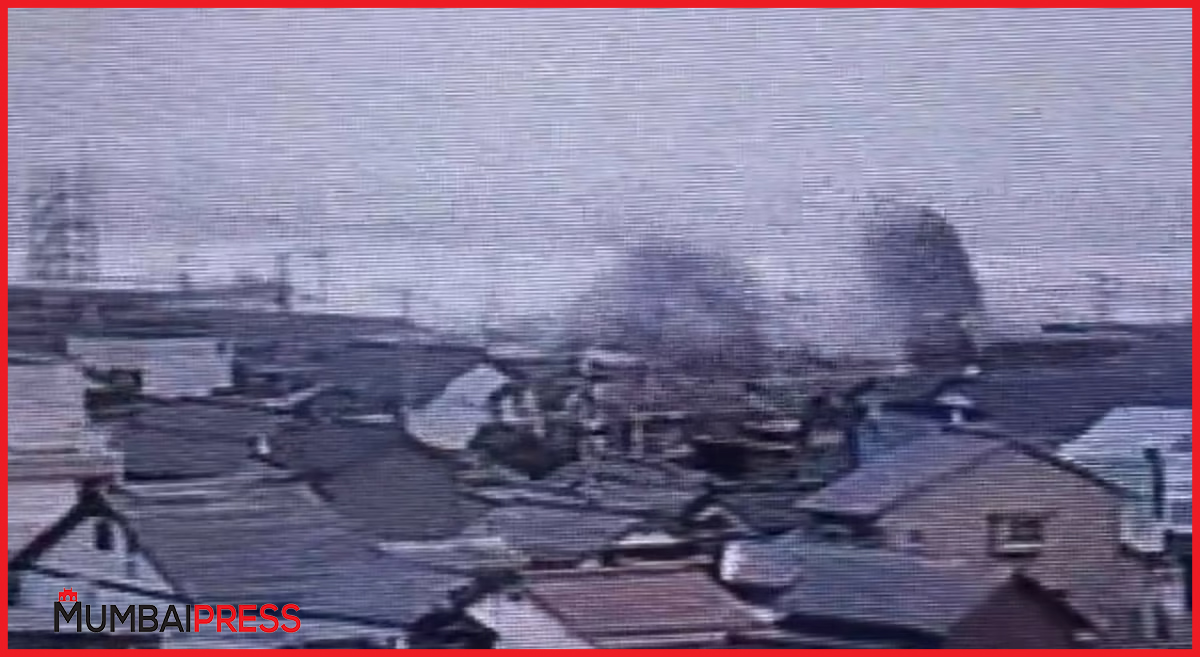
Tokyo, January 1: Tsunami waves reportedly hit coastal areas of central Japan after a powerful earthquake of magnitude 7.5 shook the country on Monday, January 1. Several videos surfaced on social media showing tsunami waves hitting Niigata and Ishikawa prefectures of Japan. At least 21 earthquakes above 4.0 magnitude struck Japan after which the country issued tsunami warning.
According to the Japan Meteorological Agency, waves as high as 1.2 meters (four feet) slammed Wajima port in Ishikawa prefecture at 4:21 pm, local time. Waves of 80 cm reached Toyama Prefecture around 4:35 pm and waves of 40 meters also reached Kashiwazaki, Niigata Prefecture, at 4:36 pm, local time. It also reached Niigata’s Sado Island at 4:10 pm, local time.
Tsunami waves hit parts of Japan
One of the videos showed waves breaking over the seawall in Ishikawa prefecture. Another video showed a powerful wave hitting a car in Niigata prefecture.
Power outages hit Japan
The powerful earthquake disrupted power supply in parts of Japan. According to reports, hundreds of residents were left without electricity. As part of preventive measures, the authorities asked people to evacuate from coastal areas of Ishikawa, Niigata, Toyama and Yamagata prefectures and move to safer locations. Traffic authorities closed major highways near epicentre of the Japan earthquake.
Tsunami warnings were also issued for Niigata, Toyama, Yamagata, Fukui and Hyogo prefectures, also along the Japan Sea Coast. Meanwhile, Russia also declared tsunami threat for parts of Sakhalin’s western coast and urges residents to evacuate to higher ground after the Japan earthquake.
-

 Crime2 years ago
Crime2 years agoClass 10 student jumps to death in Jaipur
-

 Bollywood11 months ago
Bollywood11 months agoJawan Leaked Online! Shah Rukh Khan’s Film Falls Prey To Piracy Within Hours Of Release
-
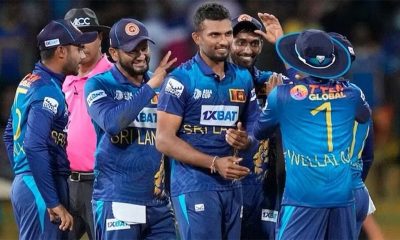
 International10 months ago
International10 months agoAsia Cup 2023: Body Blow For Sri Lanka As Lead Spinner Likely To Miss Final Against India
-
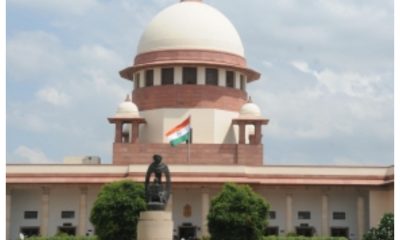
 Crime2 years ago
Crime2 years ago‘You must stop this’, SC expresses concern on hate speeches made at Dharam Sansads
-

 Bollywood11 months ago
Bollywood11 months agoWith Rs.75 Cr, Shah Rukh Khan Breaks His Own Record As Jawan Beats Pathaan On Day 1 At Box Office
-
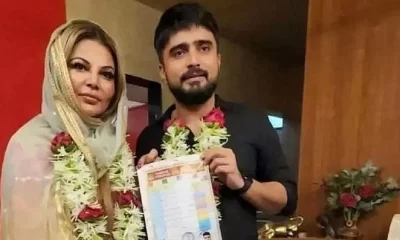
 Entertainment2 years ago
Entertainment2 years agoRakhi Sawant changes name to Fatima after her wedding with Adil Khan Durrani – Check viral Nikah pics
-

 Bollywood2 years ago
Bollywood2 years agoAnushka Sharma starts shooting for her ‘Chakda Xpress’
-

 Bollywood11 months ago
Bollywood11 months agoJawan On OTT: Shah Rukh Khan’s Film Sold To Netflix For A Whopping Rs.250 Crore












